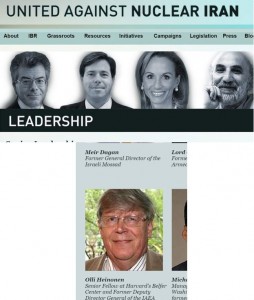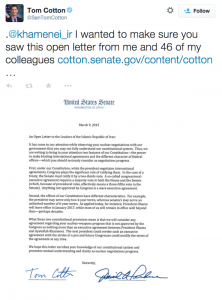As I noted earlier, I’m reading the 9/11 Follow-Up Report just completed for FBI. And while there are some interesting insights in it, in general I think the analysis of the report itself is pretty horrible (which is funny because the report says FBI needs more analysts). I’ll have more specific details on that later, but I wanted to point to what the report says about FBI not adopting “Central Strategic Coordinating Components” or CSCCs, which are basically analysts in each Field Office that are supposed to do “domain awareness” for the Field Office. That means they’re supposed to get to know the neighborhood to anticipate any problems that might come up. (As far as I know, no one has ever thought of doing a domain awareness for Wall Street, in spite of all the new threats that pop up there over and over.)
As the report makes clear, every Field Office is supposed to have someone doing this. But, as documents obtained by ACLU under FOIA have shown, it often amounts to racial profiling, whether that be Muslims or Latinos or something else. And, at least given the NYPD example, where their domain awareness program never found any plot (and didn’t find two plots covered by this FBI report, notably the Najibullah Zazi attack), there’s no evidence I know of that they actually help to prevent crimes.
Yet rather than analyzing whether this concept serves any purpose whatsoever, it instead says, “it’s corporate policy, no one is doing it well, so it needs to improve.” (Note, most of the named people interviewed for the report are not FBI agents, and many come from CIA or another intelligence agency; John Brennan, who almost certainly had a role in setting up NYPD on the Hudson, for example, was interviewed.)
What I find particularly remarkable is what the report found in the field.
According to one anecdote, 20% of analysts (not even Field Agents!) understand the point of this. And even in offices where they do understand, the Field Agents won’t do their part by going and filling in the blanks analysts identify.
Call me crazy. But maybe the people responding to actual crimes believe they learn enough in that process — and are plenty busy enough trying to catch criminals — that they don’t see the point of racially profiling people like NYPD does? Maybe they believe the ongoing threats are where the past ones of have been, and there’s no need to spend their time investigating where there aren’t crimes in case there ever are in the future?
I don’t know. But I think the Field Agents might be onto something.
Update, 3/27: Adding, there seems to be a logic problem with this too. Another big push for the FBI — a more understandable one, but not without risks of its own — is that FBI partner much more closely with local cops. If the local cops are doing their job well, wouldn’t they provide the “domain awareness” FBI needs? This is actually a point a senior FBI manager noted in discussing its relationship with ODNI (see page 92). Admittedly, a lot of cops are occupiers rather than local stewards of safety, but that’s a separate problem.
Update, 3/27: The report returns to domain awareness again, pointing to that as the one thing that can differentiate between a domestic security agency and an intelligence agency.
As the FBI began its transformation into a national security organization, at the heart of that transformation was the concept of domain awareness. Domain awareness reflected the realization that the FBI could not be reactive and wait for cases to develop, it had to proactively seek to understand its environment. From the Review Commission’s perspective, that means that domain analysis, which attempts to capture what is known and identify gaps for further collection, is at the heart of the FBI’s transformation into a domestic intelligence agency, and it needs to be a process informed by everything the USIC has to offer. This includes all information from local sources—law enforcement, colleges and universities, and prisons—to which other parts of the USIC do not have access. Robust domain analysis will allow the FBI to harness its considerable skill at collection and source development in support of identifying new threats in addition to collecting against known threats. A failure to achieve that goal will leave the US with a domestic security service rather than a domestic intelligence agency, and with a vulnerability to homegrown threats that fall outside the purview of our foreign intelligence establishment.316
(U) CSCCs are responsible for the FBI’s domain awareness and analysis. Each field office is required to establish a CSCC. The groups are comprised of small groups of intelligence analysts who are tasked to produce foundational documents such as Domain Intelligence Notes (DINs) and Threat Mitigation Strategies (TMSs). They also expose information gaps and guide special agents’ planned or incidental collection efforts. Effective CSCCs are critical to ensuring that field office efforts are threat-based and intelligence-driven.
(U) But during its field office visits, the Review Commission observed an uneven application of the CSCC concept and that many field offices struggled with effectively operating its CSCC. In the majority of the field offices the Review Commission visited, the CSCCs were not performing their intended functions. 215 Many of the intelligence analysts who were initially assigned to the CSCC had been moved to operational squads to provide tactical support to case agents, leaving the CSCC understaffed and unable to fulfill its primary mission.216 In some field offices, CSCC analysts were so involved in tactical support that their DINs and TMSs languished until the SAC accounted for them in the office’s mid and year-end reviews.217
(U) A centerpiece of the FBI’s intelligence framework is domain analysis, which entails the ability to understand what is happening in a given area of operations using all available sources of data. Accordingly, domain management is the FBI’s systematic process to develop strategic awareness in order to: identify and prioritize threats, vulnerabilities, and intelligence gaps; contribute to the efficient allocation of resources and operational decisions; discover new opportunities for collection; and set tripwires to provide advance warning.218 The Review Commission strongly believes that the field offices must prioritize collection opportunities to identify, develop, and pursue new intelligence leads in concert with their ongoing investigations.
(U) In many field offices we visited there was only one intelligence analyst left on the CSCC to conduct domain analysis for the field office and even then they spent much of their time mapping existing incidents and/or efforts. There was no observable forward looking aspect to the work. From the Review Commission’s observations, even when the DINs and TMSs are produced they are not generally valued at the field office-level as parts of a comprehensive intelligence collection plan (e.g., the plan that establishes the field’s baseline knowledge, identifies intelligence gaps, and informs the field’s strategy to mitigate new threats).219 In one field office we were told that an analyst had produced a comprehensive collection plan but it was ignored by the special agents who would have to implement it.220 We attribute this to a special agent-driven culture that still does not necessarily understand the value of filling intelligence collection requirements and, therefore, renders this overall mission a lower priority than it should be. It can also be attributed to the lack of sufficient leadership to hold field office personnel accountable for intelligence as well as criminal responsibilities.
215 (U) Some offices demonstrated a much higher comprehension of the CSCC concept and value and consequently provided higher levels of resources to facilitate mission success. The Review Commission would like to commend, however, the one field office that acknowledged that it was struggling with creating an effective CSCC and planned to visit another field office that is believed to be doing a better job so as to learn how others are operating a CSCC and perhaps identify best practices to bring back and implement. Memorandum for the Record, July 28, 2014.
216 (U) One intelligence analyst speculated the CSCC concept was widely misunderstood across the FBI because the benefit to special agents is unclear. The intelligence analyst also estimated that approximately 20 percent of analysts understood the meaning and purpose of the CSCC. Memorandum for the Record, September 17, 2014.
217 (U) Memorandum for the Record, August 14, 2014.
218 (U) Federal Bureau of Intelligence, Directorate of Intelligence, Intelligence Program Corporate Policy Directive and Policy Implementation Guide, May 2, 2013: 62.
219 (U) Memorandum for the Record, September 19, 2014.
220 (U) Memorandum for the Record, July 29, 2014.


